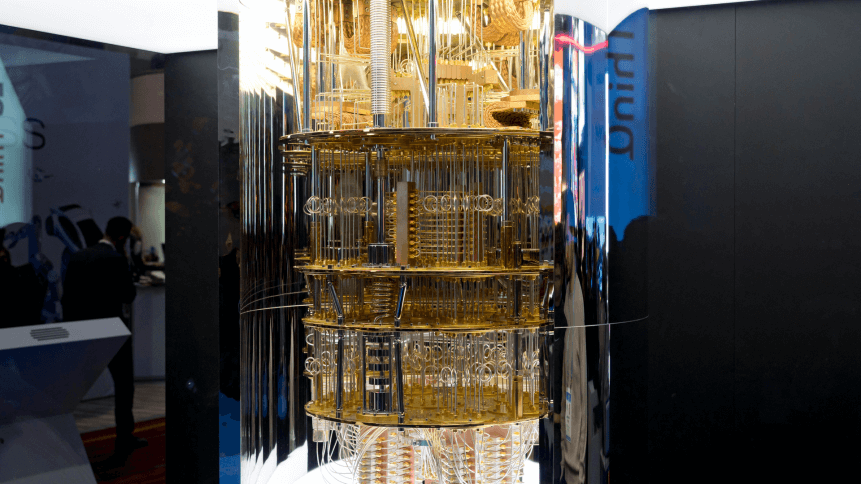The UK task-force trying to get quantum computers out of labs

- Quantum computing startups and academic organizations are teaming up to make quantum computing commercially-viable
- The research program DISCOVERY will pool expertise to help overcome some of the biggest technological and logistical barriers the industry faces
Quantum computers can process what’s impossible or difficult for today’s computers in seconds. With the industry advancing rapidly, the fields of finance, medical, automotive, and science will be able to leverage these systems to solve inextricable problems that classical computers are unable to.
That could bring transformational potential to anything from aviation, mining to drug discovery, among a lot more.
But when that potential might be tapped remains uncertain — there are currently some very high barriers to accessibility, cost, and technological advancement.
Quantum computers are vast and expensive machines that require perfectly-balanced environmental conditions. They’re powerful, but not reliable, and the slightest interference can lead to high error rates in quantum processing.
In short, getting quantum computers out of labs is like staring up at Everest.
So far, tech giants like IBM and Google have been locked in a race for quantum supremacy among more specialized firms like IonQ, Rigetti, and Honeywell. Making technology that’s commercially-viable is the goal — it’s nice to demonstrate the technology’s potential, but getting it used in the real-world is the ‘do or die’ endgame for all.
Now, nine major organizations from the UK’s quantum computing industry have announced the launch of DISCOVERY — an industry-led quantum computing research program that aims to tackle quantum computing’s technology barriers on the path to commercialization.
The £10 million (US$13 million) research program is part-funded by the UK Quantum Technologies Challenge, led by UK Research and Innovation, a non-departmental public body of the UK government.
DISCOVERY is being coordinated by Scotland-based M Squared, an international supplier of photonics and quantum systems, alongside a number of leading startups, established businesses, academic institutions, and research groups.
The idea is to pool expertise across fields and approaches to quantum computing in order to navigate and overcome technical barriers. Other members include Oxford Ionics, ORCA Computing, Kelvin Nanotechnology, and TMD Technologies
According to a blog post by M Squared, there are three “promising approaches” to commercially-viable quantum computing: neural atom, ion trap, and optical qubits.
“These approaches represent the state-of-the-art in demonstrated hardware; however, barriers to commercial deployment remain with the challenge of increasing both qubit fidelity and qubit scalability,” read the post.
“The program will demonstrate a shift from fundamental, academic activity to scalable, commercial implementations.”
Another objective of DISCOVERY is to develop the wider UK’s wider quantum computing sector, and that means working out the nuts and bolts in hardware supply and plotting roadmaps for industrial deployment for these technologies. The combined experience of the members — “well-matched with commercial nous and in-depth market knowledge” — will be a boon, in this respect.
“The DISCOVERY project will help the UK establish itself at the forefront of commercially viable photonics-enabled quantum-computing approaches,” said M Squared CEO and founder Dr. Graeme Malcolm OBE.
“The coming era of quantum technology will play a major, transformative role in both the economy and society alike. It is therefore critical that the UK leverages its expertise in science, research, and advanced industry to come together and make progress in commercial applications.”










